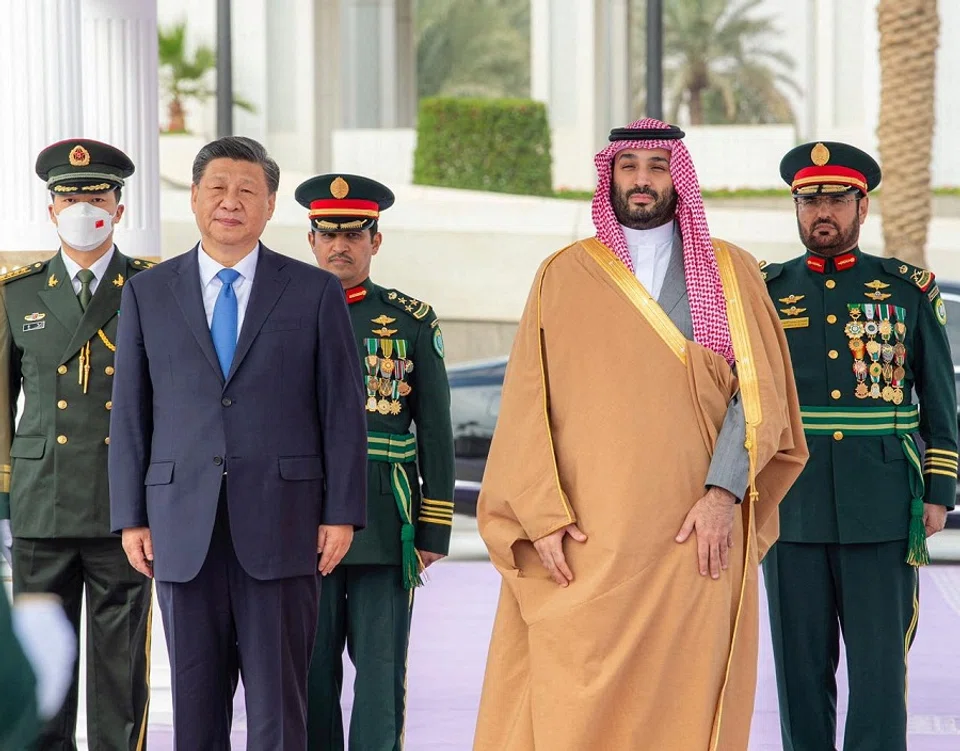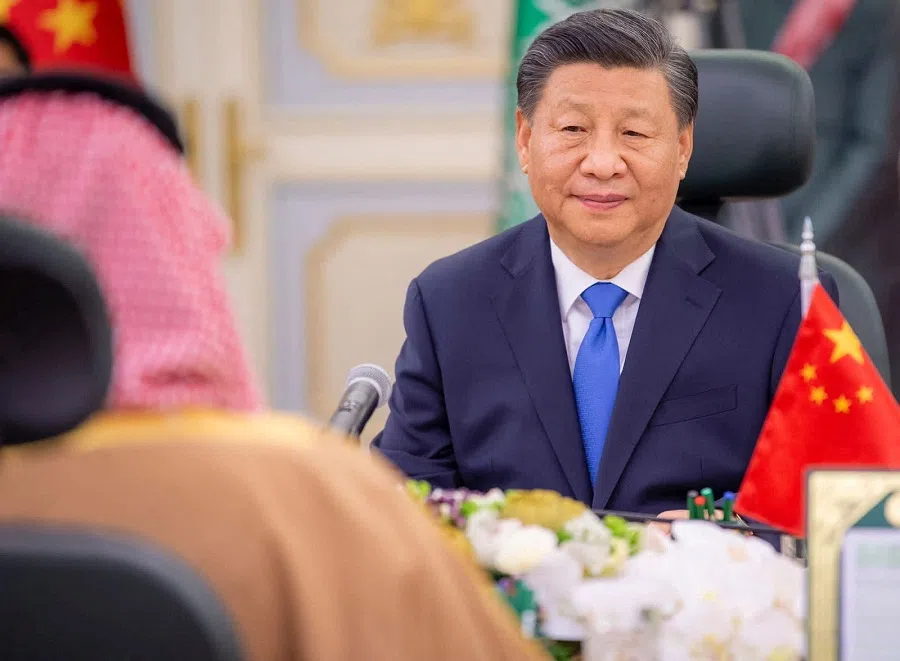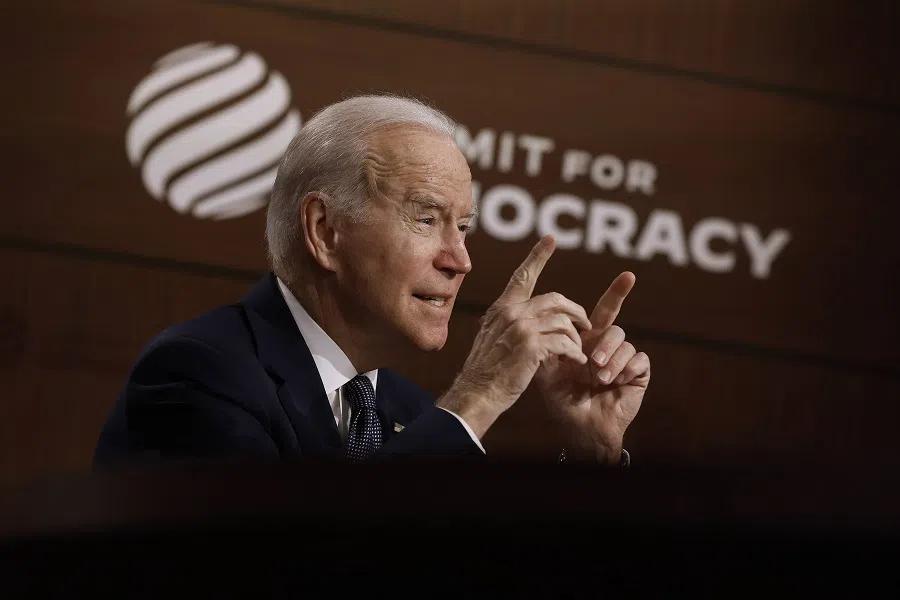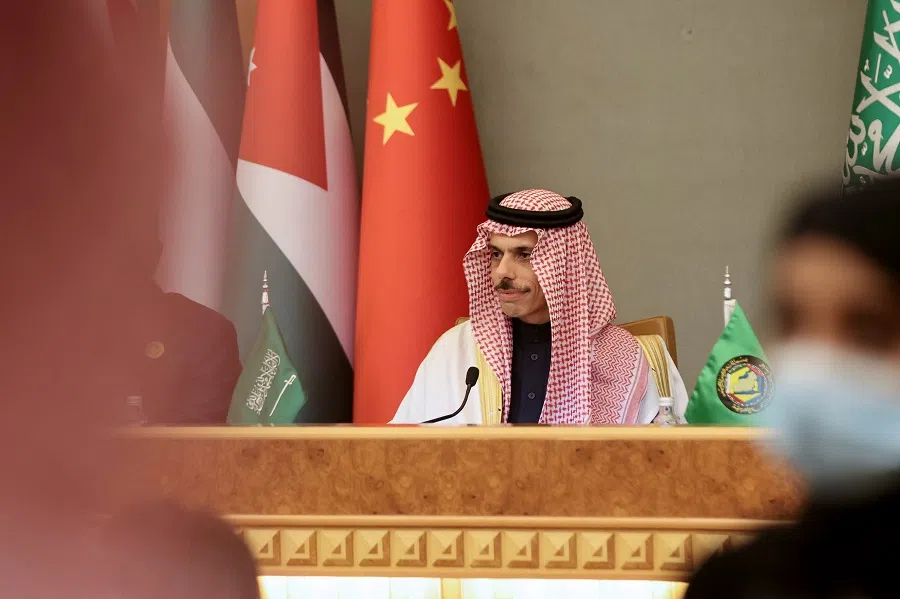Xi's Saudi visit: Middle powers uniting in a hierarchical world
Amid the US-West realignment, developing countries and middle powers have strengthened mutual cooperation via high-level diplomacy. China's deepening relations with Saudi Arabia and the Arab world as seen by Chinese President Xi Jinping's recent high-profile visit to Riyadh is a key sign of this development.

Chinese President Xi Jinping's visit to Saudi Arabia amid deepening relations and cooperation with the Saudi-led Arab League and the Gulf Cooperation Council (GCC) should be seen through the prism of the domestic politics and foreign policies of the two countries.
Xi's article in Saudi media, the Riyadh Declaration of the First China-Arab States Summit, the China-GCC joint statement, and the China-Saudi Arabia joint statement are representative of two major global issues that China has long called for multilateral cooperation and collective solution: peace and development.
Nowhere else other than in the Middle East is the need and urgency to manage these two challenging issues more acute. The region has been plagued by decades-long colonial wars in Palestine, ethno-sectarian competition between Iran and Arab states, civil wars in Syria, in-fighting within the GCC and the Arab League, and territorial disputes that have collectively contributed to serious social turmoil. Notwithstanding several oil-producing countries, most Arab countries have faced economic difficulties, rapid population growth, food shortages, and other challenges typical of developing countries.
Amid the US-West realignment, developing countries and middle powers have strengthened mutual cooperation via high-level diplomacy.
Middle powers unite
Understandably, Sino-Saudi cooperation is mainly centred on energy, infrastructure, telecommunications, and other areas. Both countries have tried to diversify their clients and stabilise the oil and manufacturing markets for their respective industries, products, and services in a shifting geostrategic context.
In addition to economic cooperation, the China-GCC summit touched on the issues of national sovereignty and territorial disputes in the Persian Gulf. The China-Arab League summit highlighted the importance of multilateralism in handling regional challenges such as the Israeli-Palestinian conflict. All these have occurred in a dynamic international context when the US and West have been strategically shifting their focus from the Middle East to the Indo-Pacific.

Amid the US-West realignment, developing countries and middle powers have strengthened mutual cooperation via high-level diplomacy. Xi praised the China-Arab cooperation forum established in Cairo in 2014 and vowed to maintain international order and multilateralism based on international law. The Riyadh Declaration interestingly highlights the status of the Arab countries as developing countries, indirectly indicating their shared status in face of the increasingly realigning developed countries, or the US/West.
The timing and context of the high-level Chinese-Saudi interaction seem to be driven by their common animosity with the US, largely caused by their authoritarian political systems and abysmal human rights records. In addition to the well-known US-China rivalry and personal tensions between President Joe Biden and Saudi Crown Prince Mohammad bin Salman in the aftermath of the Saudi assassination of Washington Post columnist Jamal Khashoggi, the Biden administration's efforts to counter authoritarian forces have gained new momentum since the 2020 presidential election.
The 2020 US presidential election has in fact shaped the Biden administration's domestic and foreign policy in many ways. Many Republican politicians backed Donald J. Trump's false claim that the voting was rigged and the election was "stolen", which precipitated the January 6th Capitol Hill siege that attempted to overturn the election. Trump's role in that riot, coupled with his alleged ties with authoritarian regimes including Russia and Arab monarchies, has greatly alarmed the Democratic Party and threatened democracy in the US and overseas.
The Biden administration's black and white binary conceptualisation of authoritarian regimes such as Saudi Arabia and China has divided the world into two groups.

To counter perceived growth of authoritarianism globally, the Biden administration held a democracy summit in December 2021 to strengthen democracy and democratic alliances worldwide. The Biden administration went so far as to vow to "advance democracy and counter authoritarianism" in its 2022 National Security Strategy, elevating authoritarianism as a national security issue.
Authoritarian alignments
The Covid-19 pandemic seems to have reinforced authoritarianism and authoritarian alignments. Authoritarianism has been amplified in the Middle East and North Africa. The Chinese government has imposed greater authoritarian control, despite the potential for negative economic and social consequences.
Added to that, the Russian invasion of Ukraine, the Chinese-Russian "back to back" relations, and the Saudi-led OPEC's oil cut all have led Washington to perceive and manage the world order in a binary way: authoritarianism versus democracy, drawing parallels to President George W. Bush's "you are either with us or against us" mentality during the global war of terror following the September 11th attacks.
By leading the Arab countries to attend a summit with emerging power China, Saudi Arabia has endeavoured to project its significance and influence in the region and beyond.
The Biden administration's black and white binary conceptualisation of authoritarian regimes such as Saudi Arabia and China has divided the world into two groups. For "authoritarian" states, this has created a certain sense of isolation, uncertainty, and even insecurity.
By leading the Arab countries to attend a summit with emerging power China, Saudi Arabia has endeavoured to project its significance and influence in the region and beyond. Criticised and sanctioned by major Western democracies, China has tilted towards a pragmatic approach to international relations that highlights China's neighbourhood diplomacy and the role of developing countries and multilateralism to counter the bifurcation.
No formation of China-Arab pole
The enhanced diplomacy and cooperation between China and Arab states, however, does not imply the formation of a China-Arab pole or US displacement by China in the region. As Prince Faisal bin Farhan, Saudi Arabia's foreign minister, recently commented after the China-Arab summit, "Cooperating with the world's number two economy is necessary, however this doesn't mean not cooperating with the world's number one economy." Adding that competition is positive while polarisation is not, he said they did not believe in polarisation or selecting between one partner and another.

Faisal bin Farhan's comments touch upon a key concept - polarity or polarisation - often utilised in analysing international relations. Polarity as a conceptual tool of international relations and world order may find its closest reality during the Cold War, thanks to the ideological, political, economic, military, and institutional formation and separation that had self-sustained socialism and capitalism within their respective circles.
The collapse of the Soviet Union and socialism has misled many political scientists to wishfully predict "the end of history" and the triumph of democracy and liberalism. Some have unequivocally claimed that the immediate post-Cold War world was unipolar since the US, the unchallenged superpower, aided by its Western allies, was the centre of world power.
The world order today is still hierarchic.
An alternative world order
The rise of China and the return to Cold War-era discourse seem to have revived bipolar discussions that China is bent on building an alternative international order such as through the expansion of BRICS and the Shanghai Cooperation Organisation. Xi's recent visit and engagement with Saudi Arabia, the Gulf states, and the Arab League seemingly fit into this bipolar theory of the emerging world order. However, bipolarity is a flawed concept in describing the formative international order and power distribution after the Cold War. Nor is it correct to discuss Arab-Chinese relations as a contributor to a bipolar or multipolar world order.
The world order today is still hierarchic. The US and the West remain atop the hierarchy of global relations in terms of the degree of political-institutional cohesion; economic, technological, and military strength; and security and foreign policy alignment. Western aid to Ukraine to resist Russian aggression as well as Western export controls on high-tech and high-value products to China reveal this reality. However, as emerging power or middle power, China and Arab states have leeway to act in the hierarchy of international relations driven by self-interest.
China-Arab relations in this sense can be best described in a sociological term - differential mode of association - a concept invented by Fei Xiaotong to analyse Chinese social networking spreading out from each individual's personal connections and interests. The concept can be expanded and applied to sovereign actors and their associations based on their national interests.
As Saudi Arabia's foreign minister elaborates, "The Kingdom does not deal with one path, and we are open to everyone, and we believe in multilateral cooperation, and the relationship with China is deeper than just an issue of armaments. We will continue to formulate our policies according to our interests and are open to all." The same is true of China and many middle powers today.
Related: Will China become an 'empire by invitation' in the Middle East? | Chinese academic: Can China challenge the US's standing in the Middle East? | Chinese academic: Beijing does not want China to replace the US in the Middle East | Shifting alliances in the Middle East: Countering the China threat with an Indian Ocean triangle





